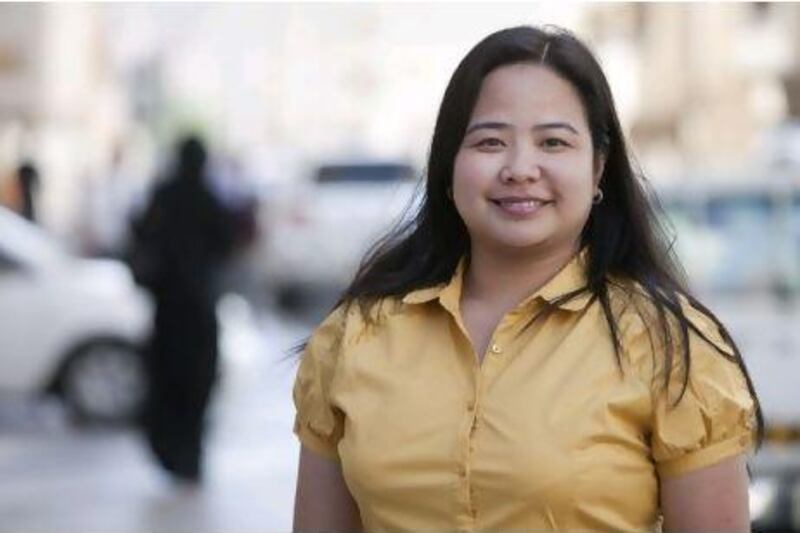DUBAI // Filipino rights groups plan to train a pool of paralegal volunteers to help compatriots better understand the law and handle cases.
Migrante-UAE, an organisation created to protect Filipino workers abroad, said people contact the service for advice after being imprisoned or to seek assistance with work complaints.
"Filipinos are detained in almost all police stations and jails in the UAE," Nhel Morona, the secretary-general of Migrante-UAE, said. "We seriously need to act on this, with the help of the community.
"People have been calling us from jail to complain they were wrongly accused of theft, while others have been jailed for bad debts."
The rest of the calls are related to labour concerns including long working hours, unpaid salaries and being forced to work overtime without pay.
More than half of the phone calls to Migrante-UAE - an average of five complaints per day - are from women.
"Women migrants are more prone to mistreatment and abuse," said Jhasmine Castillo-Cipriano, the co-ordinator of the women's rights group, Gabriela."But they usually feel more comfortable speaking to a female volunteer about problems."
The local chapter of Gabriela was launched in February to provide counselling to Filipina migrants, particularly victims of sexual abuse. The group has been active in the Philippines since March 1984.
On April 25, Mrs Cipriano visited a Filipina, identified by the consulate as AS, at Al Muraqqabat police station. The woman has been in prison since December after she reported that she had been raped.
"I expected her to be happy to see a compatriot," said Mrs Cipriano. "But she looked helpless and traumatised by the whole incident. She cried and asked me why she's in jail when she was the one who complained."
Last month, a public prosecution source said AS had been charged with prostitution. She is due to appear before the Dubai Criminal Court of First Instance today.
The rights groups are planning a series of seminars to address the legal needs of expatriates.
"We can't do anything about this case now," Mr Morona said. "We will focus on prevention but will also educate participants on how to deal with existing cases."
Filipino migrant leaders will be trained so they can disseminate information on the law in an effort to prevent even more of their countrymen from ending up in jail, he said.
The paralegals will provide advice to compatriots and write affidavits and reports, which they could forward to Philippine authorities such as the embassy, consulate and the Philippine overseas labour offices in Dubai and Abu Dhabi.
The paralegal training in Dubai will consist of three sessions, which are pencilled in for May 27, June 3 and June 10. There are also plans to approach Grace Princesa, the Philippine ambassador to the UAE, on holding more training in Abu Dhabi in the coming months.
In Dubai, the sessions will include an introduction on the migrant workers' situation. The second session will educate participants on labour laws, including the Filipino Migrant Workers Act and the International Convention on the Protection of the Rights of All Migrant Workers and Members of Their Families.
The last session will discuss ways to handle cases, prepare an affidavit and incident report and ensure the immediate intervention and resolution of problems.
"Many of our compatriots do not know how to react when faced with a complaint," Mr Morona said. "We hope to create a pool of paralegal volunteers in the UAE to address this issue."






